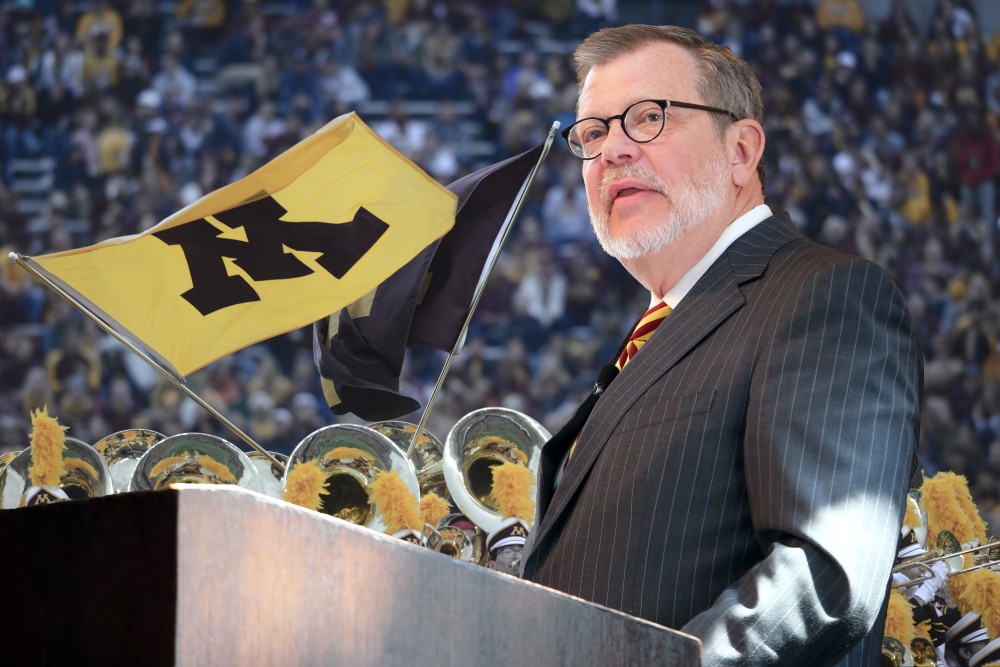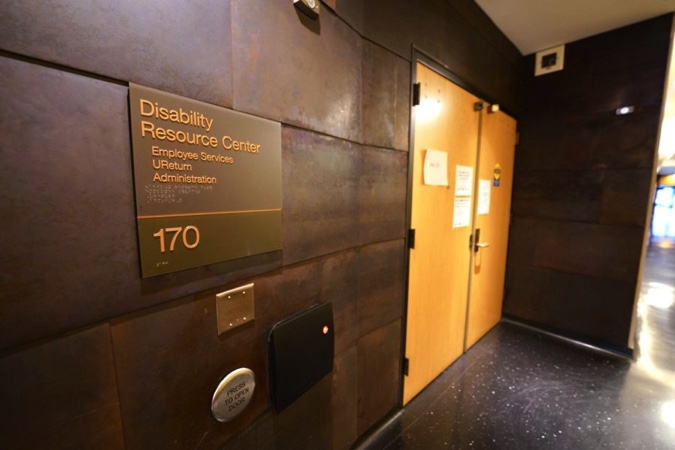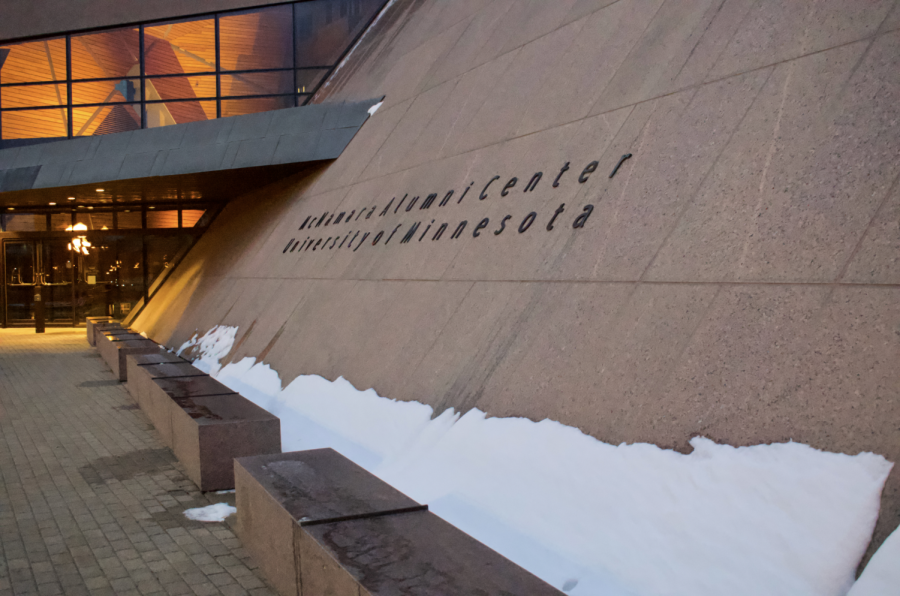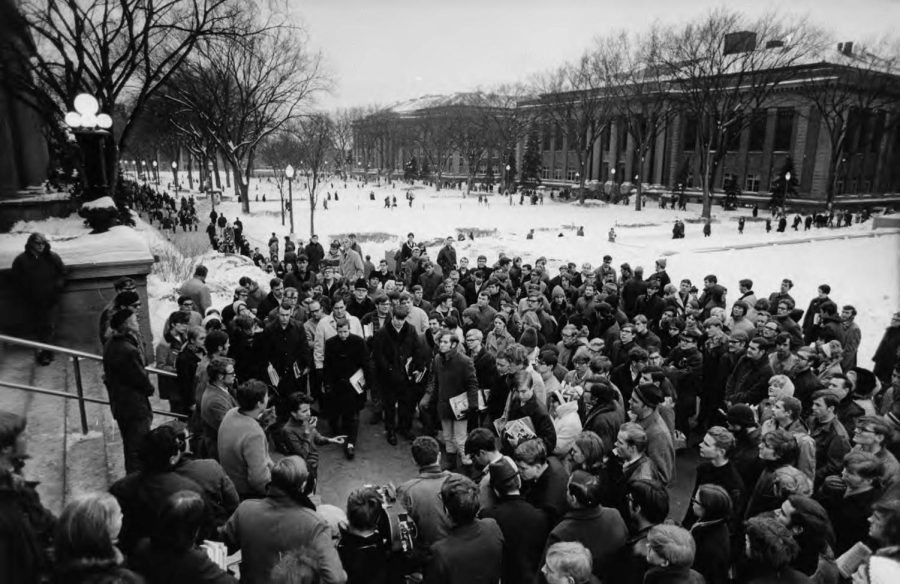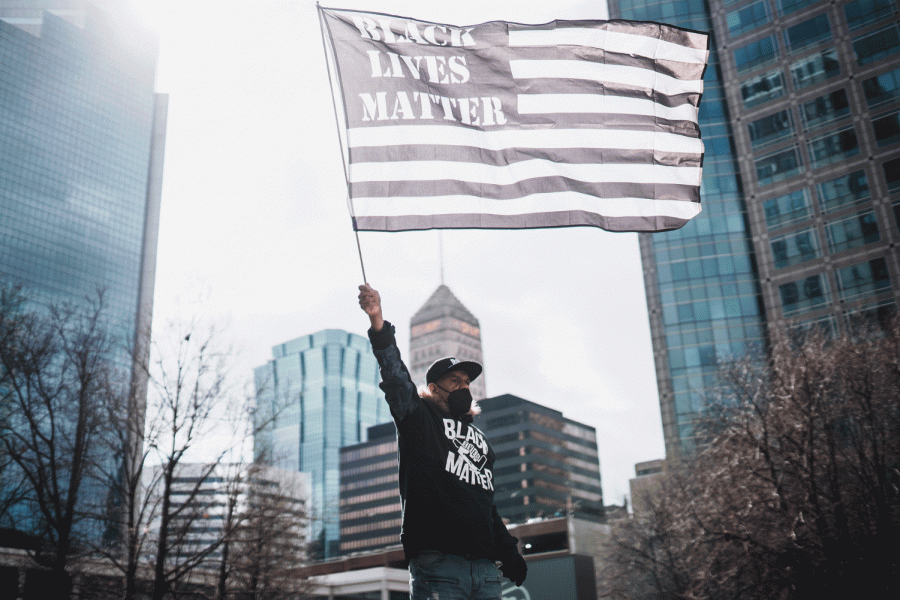Eric Kaler strode into Rapson Hall on April 18 to meet with students and faculty from the Department of Landscape Architecture.
During the hour-long department visit, the University of Minnesota president heard from and queried eager graduate students on their wide-ranging research: autonomous systems, water issues in India and green-space needs in St. Paul.
When Kaler took office in 2011, he identified roughly 180 departments to visit in his nine-year tenure. But a schedule that often exceeds 70 hours per week has left him with around 120 departments to visit in the last two years of his contract.
As time dwindles, Kaler’s goals are getting more difficult to finish — and his window to stamp his legacy is waning.
“In administrative jobs … there’s a certain period of time, for presidents. This [window] probably would be about 10 years,” he said. “If something needs changing and you haven’t done it in the 10-year period, either you don’t want to change it or you can’t change it.”
Kaler’s leadership of Minnesota’s largest university has been filled with triumph and turmoil. To his colleagues, Kaler is known for his fundraising prowess and holding resident tuition down. But his term has also been marred by numerous athletics department scandals, steep nonresident tuition hikes and scrutiny from state legislators.
An academic career
Kaler is a lifelong academic. He received a chemical engineering Ph.D. from the University in 1982, before spending the next 29 years in faculty and administrative roles at public institutions across the country.
His background, he said, helps him navigate the complexities of leading a major university.
“I’m very analytical, and I tend to parse problems in that sort of analytical way,” Kaler said.
Former Regent Patricia Simmons chaired the presidential search committee that recommended Kaler. The University has thrived under Kaler’s leadership, she said, pointing to his work on tuition and fundraising expertise.

Kaler’s resident tuition hikes have come at lower rates than previous presidents. In his seven years in office, undergraduate resident tuition has risen about 9.9 percent. The previous seven years under former University President Bob Bruininks saw resident tuition rise around 48 percent.
But nonresident, nonreciprocity students have not fared as well under Kaler. Their tuition went up 12.5 percent in the past year. Kaler has stated he wants to move this rate closer to the middle of the Big Ten, as it is currently one of the lowest.
“He’s been a great steward of resources — holding tuition, raising philanthropy,” Simmons said. “He doesn’t take the credit for it, but he is doing an extraordinary job of raising private funding.”
In September, the University unveiled a 10-year, $4 billion fundraising plan called “Driven: The University of Minnesota Campaign.” The announcement initiated the public phase of the fundraiser, as officials quietly raised $2.5 billion in private funds since 2011. The $4 billion will be spent on students, faculty, research, initiatives and outreach.
University Medical School Dean Jakub Tolar said Kaler has created a financially efficient institution by lobbying for state and private funds while cutting administrative costs.
“He acts in the line of sight of the benefit of the University, and I admire that,” Tolar said.
Responding to adversity
On Sunday, reports surfaced the University paid almost $300,000 in settlements to two women who reported being sexually harassed by former athletics director Norwood Teague in 2015.
The Teague incident is one of several athletics department scandals that have plagued the University during Kaler’s tenure. In December 2016, Gophers football players boycotted team activities over sexual assault allegations. Additionally, former basketball player Reggie Lynch faced sexual misconduct allegations and was expelled in the last year.
“We’ve clearly had some athletic-related things that have not been easy to manage, from Norwood Teague to the football issues. Those have been the hard spots,” Kaler said.
The scandals have drawn scrutiny on a national level and at the state Capitol, where lawmakers have been critical of the University’s spending priorities.

But Senate Majority Leader Paul Gazelka, R-Nisswa, said Kaler warns lawmakers of coming scandals before they reach the press and takes responsibility for the University’s missteps.
“If it’s contrary to the values of where he wants the University of Minnesota to go, he’s not afraid to take a stand,” Gazelka said. “I would say that he builds trust before he has to repair it, and that’s a big difference.”
The scandals have prompted the University to hire new athletics personnel and establish a campus-wide effort to prevent sexual misconduct. University Regent Richard Beeson said Kaler has an ability to turn “crises into political strengths.”
“He has [strengths] in problem-solving and putting the systems in place to ensure that what is a weakness or a vulnerability is a strength,” Beeson said.
Kaler has been tasked with maintaining free speech in a divisive campus climate. State lawmakers and conservative media outlets criticized the University in February about the location it chose for hosting conservative speaker Ben Shapiro on the St. Paul campus.
Kaler’s efforts to maintain campus climate are often a balancing act. He advocates for free speech rights, but he has consistently condemned hate speech without prohibiting it.
“We need to be a place where people come together and have dialogue and learn and respect each other’s point of view,” Kaler said.
Sealing his legacy
As Kaler heads into the final stretch of his contract, he hopes to fulfill his last few priorities: overseeing the rollout of the President’s Initiative to Prevent Sexual Misconduct, completing the $4 billion fundraising campaign and improving the University’s relationship with Fairview Health Services.
Seeing the capital fundraising campaign through its 2021 end would keep Kaler in office for another year. But he said he has no desire to continue his role past then, as he will have already exceeded the average tenure of a university president.
As for what’s ahead, Kaler said he would like to return to a faculty role where he can teach and conduct research, or maybe lead a foundation.
“I certainly would not want to go beyond 2021, which would be 10 years, because I actually believe what I said,” he said. “We’ll see. I can’t predict the future.”










